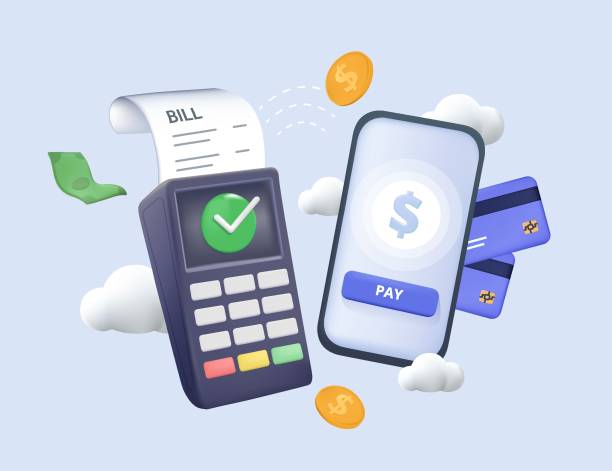You might not think an ecommerce calendar is a big deal, but it actually could be the secret weapon you need to crush your online sales goals this year. If you’re an online seller still managing your promotions and campaigns in a haphazard way, it’s time to get organized. A calendar will help you plan and execute a winning ecommerce strategy. In this article, we’ll walk through how to create an ecommerce calendar tailored to your business and goals. We’ll look at key dates to include, like seasonal events, sales holidays, and product launches. An ecommerce calendar keeps you focused and helps ensure you hit your targets. Read on to learn how this simple tool can take your business to the next level!
Why You Need an Ecommerce Calendar

An ecommerce calendar is one of the most useful tools you can have in your arsenal. It helps you plan out your marketing campaigns, product launches, sales, and events to keep customers engaged all year round.
Stay Organized
Running an online store means juggling a lot of moving parts. An ecommerce calendar gives you an at-a-glance view of all your important dates so you never miss a beat. You’ll know when to start promoting an upcoming sale, order products for the holidays, publish new content, or launch a social media contest. No more last-minute scrambling!
Optimize Your Sales
With a calendar, you can map out the best times for sales, promos, and product releases based on your store’s sales patterns and industry trends. Group together events that complement each other for the biggest impact, like offering a discount code for a new product launch or bundling a social contest with a flash sale. An ecommerce calendar helps you make the most of peak sales seasons and keep revenue coming in all year.
Stay on Schedule
Running behind schedule is stressful and can hurt your business. An ecommerce calendar acts as a timeline to keep all your tasks and responsibilities on track. Set deadlines for yourself and your team and get alerts as dates approach so you never miss an opportunity.
Using an ecommerce calendar is one of the smartest ways to organize your online store, boost sales, and achieve your business goals. With everything mapped out ahead of time, you’ll feel in control and ready to crush it. Isn’t that a great feeling?
How to Build Your Ecommerce Calendar

An ecommerce calendar helps you stay on track to achieve your business goals. To build one, start by determining your key objectives. Do you want to increase traffic, boost conversions, or hit a specific revenue target? Once you’ve defined your goals, figure out the strategies and tactics you’ll use to accomplish them. For example, to drive more traffic you might focus on social media marketing or search engine optimization. To improve conversions, work on optimizing your website or email marketing.
Set Monthly Priorities
With your goals and strategies in mind, determine 2-3 priorities to focus on each month. Don’t try to do everything at once or you’ll feel overwhelmed and spread yourself too thin. Maybe in January you’ll concentrate on revamping your social media profiles and in February you’ll make site improvements to enhance the user experience.
Map Out Your Content
Figure out what types of content—blog posts, social media updates, emails—you need to execute your strategies. Then map out a content calendar for the next few months. Try to keep a consistent cadence so you’re posting and emailing regularly. And make sure your content is high quality, relevant, and helpful for your audience.
Review and Revise
As the months go by, review how your strategies and content are performing. See what’s working and not working so you can make changes. You may need to adjust your goals or switch up your priorities and content types. Building an ecommerce calendar is an ongoing process of planning, implementing, evaluating, and improving. With regular reviews, you’ll get better at developing a calendar that fuels your success.
Optimizing Your Ecommerce Calendar for Success

To crush your ecommerce goals, you need an optimized content calendar tailored to your online business. A well-designed calendar helps ensure you’re publishing valuable content for your customers on a consistent schedule.
Plan Your Content Themes
Group similar topics, products, or keywords into content themes. For example, if you sell gardening tools, group content into themes like “lawn mower maintenance,” “pruning tips,” or “planting schedules.” Focus on one theme each week or month. This makes content creation more efficient and helps readers find what they need.
Determine Your Content Mix
Provide a good mix of content types like blog posts, videos, social media updates, and email newsletters. For example, publish two blog posts, one video, ten social media updates, and one newsletter issue each week. Keeping a steady stream of useful content, in different formats, builds trust and authority with readers.
Set a Consistent Content Calendar
Establish a routine publishing schedule and stick to it. For example, blog posts on Mondays and Thursdays, videos on Tuesdays, social updates daily, and a newsletter on Fridays. Your readers will come to expect and rely on your content, so avoid skipping or delaying posts whenever possible. If life gets busy, create a small backup supply of evergreen content you can tap into.
An ecommerce content calendar, focused on providing value to your customers and community, will drive more traffic, increase brand awareness, and boost sales. Put in the work to plan, create, and publish amazing content on a steady schedule. Your business will reap the rewards of an optimized content calendar.
Conclusion
So there you have it. An ecommerce calendar is your new secret weapon for crushing your online sales goals. By planning out your promotions, email campaigns, and product launches ahead of time, you’ll be ready to execute your strategy like a pro. And knowing what’s coming down the pipeline keeps your team aligned and motivated. The key is sticking to your calendar once it’s set – don’t let all that planning go to waste. Track your results so you can tweak as needed for next time. With a solid calendar guiding your ecommerce efforts, you’ll be blown away by the boost in sales and growth of your business. Now get out there and start planning your ecommerce domination!
To read more about our articles, you can check our blog page.












